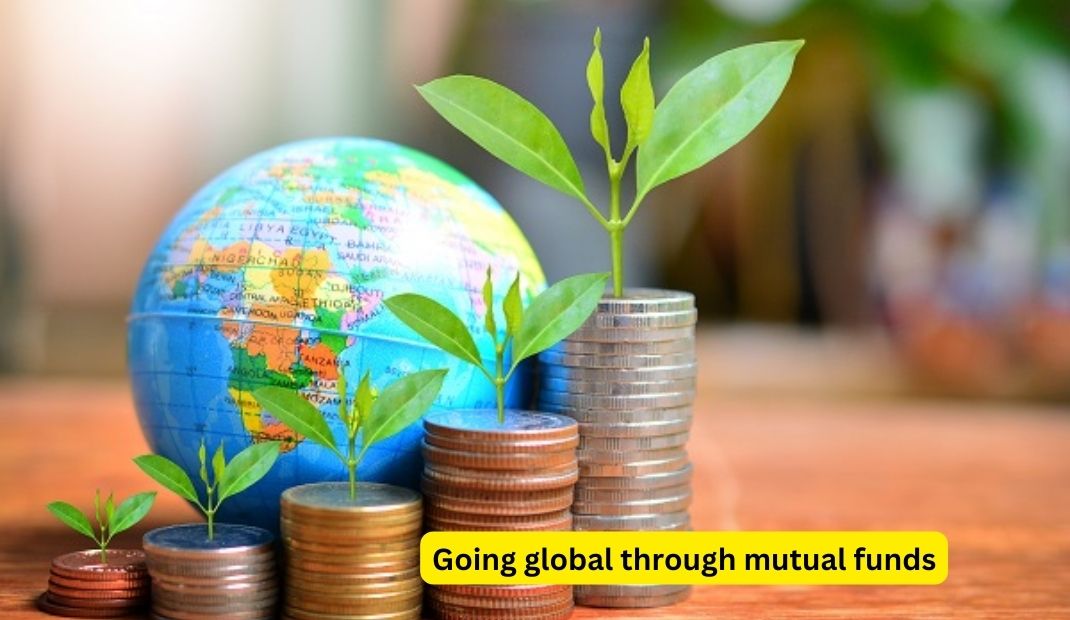Going global through mutual funds
Going global through mutual funds
Understanding mutual funds
Mutual funds represent a powerful financial tool for diversifying and broadening investment portfolios. These pooled investments are managed by professional fund managers, offering individuals the opportunity to invest in a wide range of securities, such as stocks, bonds, and other assets. Understanding the different types of mutual funds is crucial for making informed decisions. From index funds to actively managed funds, each category comes with its own risk-reward profile and investment strategy.
Furthermore, it’s important to recognize that mutual funds provide access to global markets, allowing investors to participate in international opportunities without having to navigate individual foreign exchanges or deal with currency risks. This global exposure can help mitigate the impact of domestic market fluctuations while tapping into emerging economies and industries. By comprehending the dynamics of mutual funds and their global implications, investors can harness their potential for long-term growth and capital preservation on a worldwide scale.
Benefits of global mutual funds
Investing in global mutual funds can offer a wide range of benefits for savvy investors. One major advantage is diversification—the ability to spread risk across various international markets and industries. By accessing a diverse pool of assets from around the world, investors can potentially reduce their exposure to market volatility and increase the likelihood of achieving long-term growth.
Furthermore, global mutual funds provide access to opportunities that may not be available domestically. This includes exposure to emerging markets, innovative industries, and thriving economies that could offer higher returns compared to traditional domestic investments. Additionally, investing globally can help hedge against currency risk by taking advantage of exchange rate fluctuations and potentially enhancing overall portfolio performance. In a rapidly changing global economy, the benefits of embracing international markets through mutual funds are becoming increasingly apparent for investors seeking to maximize their returns while managing risk effectively.
Risks and challenges
When it comes to investing in mutual funds for global exposure, it’s important to be aware of the risks and challenges that come with such a diversification strategy. One significant risk is currency fluctuation, which can impact the value of your investments. With global investing, you may also face political instability and regulatory changes that could negatively affect the markets.
Furthermore, different markets have their own unique economic and market risks, which may not be present in your home country. For instance, emerging markets can offer high growth potential but also come with higher volatility and less predictable performance. It’s crucial to conduct thorough research and due diligence before venturing into international mutual funds to mitigate these risks and navigate any challenges that may arise along the way.
Selecting the right global funds
When it comes to selecting the right global funds, investors need to consider a variety of factors beyond just past performance. Diversification is key, and global funds can provide exposure to a wide range of markets, industries, and currencies. It’s crucial for investors to assess the fund’s investment strategy and understand how it aligns with their own financial goals and risk tolerance. Examining the fund manager’s track record can also offer valuable insights into their ability to navigate international markets.
Moreover, looking beyond the numbers and researching the fund’s holdings can shed light on its overall approach and potential risks. Considering factors such as expense ratios, turnover rates, and any currency hedging strategies employed by the fund can further aid in making an informed decision. Additionally, staying updated on geopolitical events and global economic trends can help investors anticipate potential impacts on their chosen global funds. By taking a comprehensive approach to selecting global funds that goes beyond surface-level metrics, investors can better position themselves for long-term success in international markets.
Diversifying your investment portfolio
Diversifying your investment portfolio is essential in today’s global market. By spreading your investments across different asset classes, industries, and geographical regions, you can reduce the risk of potential losses and maximize returns. One way to achieve diversification is through mutual funds, which offer exposure to a wide range of securities managed by professional fund managers.
When considering diversification through mutual funds, it’s crucial to look beyond domestic markets and explore global opportunities. Investing in international mutual funds allows you to access growing economies and industries that may not be readily available in your home country. This can provide a hedge against domestic economic downturns and currency fluctuations while offering the potential for strong growth prospects in emerging markets.
Furthermore, investing globally through mutual funds provides an opportunity to benefit from varying market cycles and economic conditions across different countries. By incorporating international exposure into your investment portfolio, you can enhance overall stability and potentially seize new growth opportunities that may not exist within a purely domestic investment strategy.
Incorporating global mutual funds into your investment portfolio presents an exciting avenue for diversification while also offering the potential for attractive returns. As investors continue to seek ways to expand their horizons beyond their home market, embracing a diversified approach through international mutual funds can be a strategic move towards building a resilient and well-rounded investment portfolio.
Managing currency fluctuations
Managing currency fluctuations is a critical aspect of investing in mutual funds on a global scale. As currency values fluctuate, they can impact the returns on international investments. One popular strategy for managing such fluctuations is hedging, where investors use financial instruments to offset potential losses due to currency movements. However, it’s essential to carefully consider the costs and benefits of hedging, as it may not always guarantee positive outcomes.
Another approach to managing currency fluctuations is diversification across various regions and currencies. By spreading investments across different geographies and currencies, investors can minimize the impact of adverse currency movements on their overall portfolio performance. Additionally, staying informed about global economic developments and geopolitical events can help investors make proactive decisions regarding their mutual fund investments in response to potential currency fluctuations.
Conclusion: Going global with confidence
In conclusion, venturing into global markets through mutual funds requires confidence and a strategic approach. It’s imperative to stay informed about international economic trends, political developments, and cultural nuances that can impact global investments. Embracing diversity is crucial when going global, as it allows investors to tap into different markets and industries with varied potential for growth.
Furthermore, maintaining a long-term perspective is essential when investing in global mutual funds. Market volatility may present challenges, but it’s vital to remain steadfast in the chosen investment strategy and not be swayed by short-term fluctuations. Having a diversified portfolio of global mutual funds can help mitigate risks and maximize opportunities across various regions and asset classes. By being well-informed, adaptable, and patient, investors can confidently navigate the complexities of the global market landscape with an eye toward long-term success.



